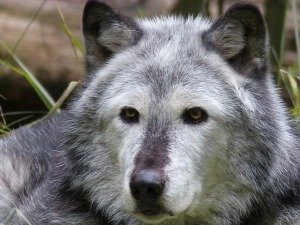A newly discovered ancient wolf bone suggests that man’s best friend may have been our friend much longer than we originally thought, according to new research. A DNA analysis suggests dogs diverged from wolves 27,000 to 40,000 years ago instead of between 11,000 to 16,000 years ago, as previously thought.
In a new study researchers radiocarbon-dated a Taimyr wolf bone found in northern Siberia and concluded it to be approximately 35,000 years old. The ancient wolf appears to be the most recent common relative of modern wolves and dogs.
Two scenarios could have played out about 40,000 years ago, with the simplest being that dogs became domesticated by humans around that time.
“The only other explanation is that there was a major divergence between two wolf populations at that time, and one of these populations subsequently gave rise to all modern wolves,” study co-author Love Dalén of the Swedish Museum of Natural History stated in a media release.
With that theory, however, the second wolf population would had to have gone extinct at some point.
“It is possible that a population of wolves remained relatively untamed but tracked human groups to a large degree, for a long time,” another study co-author, Pontus Skoglund, of Harvard Medical School said in the same release.
Earlier research estimated that genetic mutation rates were much faster than what the most recent research found. The mutation rate in the Taimyr wolf genome was, however, just half of what had been thought, Dalen told Reuters
“The difference between the earlier genetic studies and ours is that we can calibrate the rate of evolutionary change in dog and wolf genomes directly, and we find that the first separation of dog ancestors must have been in the older range,” Skoglund said.
An important implication of the study is re-imagining how dogs came to be an important part of human social groups. The prevailing theory is that dogs became domesticated once humans settled into agricultural-based communities and were no longer nomadic wanderers.
But humans may well have “caught wolf cubs and kept them as pets and this gradually led to these wild wolves being domesticated,” Dalen told the BBC. “If this model is correct, then dogs were domesticated by hunter gatherers that led a fairly nomadic lifestyle.”
The researchers published their study Thursday in the journal Current Biology.
Stay Connected